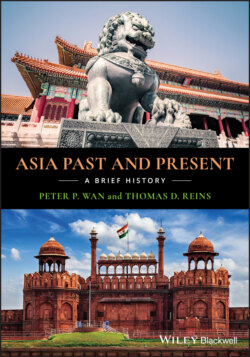Читать книгу Asia Past and Present - Peter P. Wan - Страница 36
Lao Zi and Daoism
ОглавлениеLao Zi (571?–471 BCE), the founder of Daoism, was a contemporary of Kong Zi, and his teachings were collected in the book Lao Zi (aka Dao De Jing). His focus was on the role of “Dao”—Chinese for “the way.” To him, Dao is not a volitional being with a will to intervene in human affairs, but rather a cosmic force, or a set of universal truths or natural laws. He is quoted as saying, “Man is submissive to the Earth, the Earth is observant of Heaven, Heaven is in compliance with Dao, and Dao conforms to nature.” His ultimate goal was to achieve harmony between humans and nature and among humans themselves. While Confucius endeavored to create an ideal society through social activism, Lao Zi believed in letting all things take their natural course with minimal human intervention. His core concepts are the “void” (nothingness), “non‐action” (to do nothing), and the dialectic (unity of opposites). He used parables to illustrate his abstract ideas. He said, “Nothing is the mother of all things.” To illustrate his point, he pointed out that the use of a house is the empty spaces (a void) between the solid walls, just as the use of a wheel is the hole (a void) that holds the axle of the cart. He believed in non‐action, asserting, “Dao does nothing, and accomplishes all things.” Sow the seed, let nature take its course, and the plant will grow on its own. Whatever one’s goal, be it to grow a plant, fight a battle, rule a country, or survive adverse circumstances, the best approach is to let things take their natural course.
In his ideal state, the ruler is content to control a small territory with a small population, and govern by non‐action (or laissez‐faire). He would discourage education in order to prevent ambition; cuts off commerce and travel to hold back greed and cunning; and keep his subjects bodily strong but mentally ignorant, so they can toil in the fields and live a simple and peaceful life. Thus, the ruler would have no need for active intervention; he can reign by doing nothing.
Lao Zi had a keen sense of how the principle of the unity of opposites applies to all things: light and darkness, male and female, good and evil, high and low, fortune and misfortune. Each exists in relation to its opposite, each is inseparable from its opposite, and each may evolve into its opposite. His idea of the unity of yin and yang, a primitive form of dialectic, lives on as a core concept in modern Chinese thinking.
